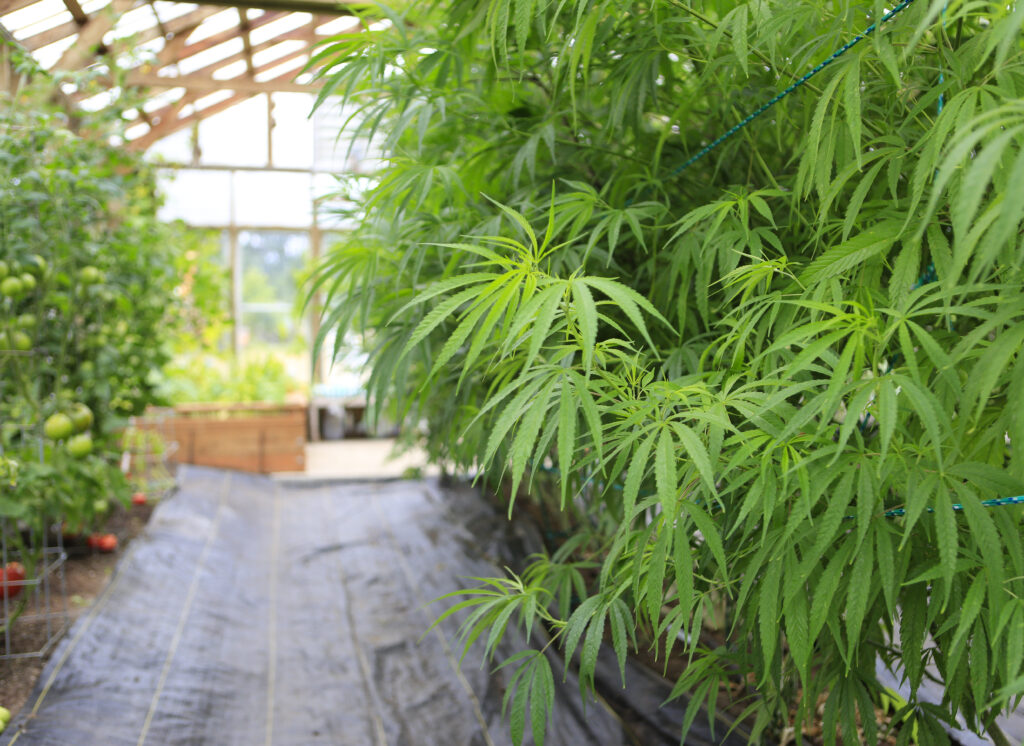Marijuana, Misinformation and Misguidance
“If you build it, they will come!” By THEY, I mean NIMBYs (Not in My Back Yard) and CAVE People (Citizens Against Virtually Everything). Where there is development, you will find people who want to stop it for reasons ranging from reasonable to delusional. In this series we’ll take a look at different types of development and the motivation behind some common forms of opposition. To effectively deal with opposition, you need to understand where it is coming from and why.
First on the list: Marijuana
Misconceptions and fear often drive NIMBY opposition to marijuana projects. Even in Massachusetts, where voters approved its legalization four years ago, operators find that a vote supporting legalization does not translate to support for a facility in your neighborhood. With that vote, Marijuana dispensaries were allowed in every city and town unless local voters approved a ban. Furthermore, municipalities, by mandate, would HAVE to allow at least 20% of the amount of licensed liquor stores in town.
So, what does a NIMBY do when a municipality is required to have a dispensary(ies) and the proposed location is too close to home? You resort to misinformation, fear mongering and scare tactics.
“My property values will go down!”…“This will only attract crime!” …“People will be smoking on site and the whole neighborhood will smell!”…“Kids will be able to access the facility and buy marijuana!”…“Lines will be down the street!”
The interesting thing about NIMBYs is how energetic and passionate they are about not wanting something. However, they can never seem to find the time to do their own research. When it comes to marijuana dispensaries, because it is essentially a new industry in Massachusetts, it’s all about educating the public.
Those same people who advocated for the Trader Joe’s and the Whole Foods in town will be shocked to find out that marijuana dispensaries have that same impact on increasing home values…except on steroids! According to a study conducted by University of Wisconsin Business School[1], analyzing property values in Colorado and in California, “since Colorado’s recreational marijuana law took effect on January 1, single-family residences within 0.1 miles of Denver’s marijuana shops saw an 8.4 percent greater increase in value compared to properties located between 0.1 miles and 0.25 miles from shops. The increase in property value equates to an estimated $27,000 for an average house in the area.”[2]
The notion that marijuana dispensaries attract crime is also false and can be supported by multiple studies as well.[3] In addition to on site security personnel, many, if not all, marijuana dispensaries use 24/7 live monitored surveillance. The studies referenced have shown that having an adult-use marijuana dispensary with 24/7 camera surveillance has served as a crime reducer in neighborhoods in Colorado and California, observing a 20% to 30% reduction in property and violent crime for surrounding areas. Not to mention, Massachusetts has even stronger security requirements than the states used in these studies.
While marijuana is legal to those 21+ in Massachusetts, consuming it in public is illegal. Dispensaries have security personnel on site to enforce this. Some even ban customers for breaking this law on their premises. This level of security makes it nearly impossible for diversion of product to minors. In fact, marijuana dispensaries, as they begin to roll out across the commonwealth, are putting drug dealers out of business by offering a safe and legal alternative to consumers.
Lastly, as more and more dispensaries open up in Massachusetts, offering more options to customers, lines have gone down. Dispensaries are becoming less of a destination store and more of a local shop. Moreover, due to COVID-19 restrictions, dispensaries are offering pick-up and delivery options, cutting down lines further.
Acknowledge, but educate, and the reasonable folks will jump on board. I’ll save dealing with unreasonable people for another time.
[1] James Conklin, Moussa Diop, and Herman Li. “Contact High: The External Effects of Retail Marijuana Establishments on House Prices,” in Real Estate Economics, September 5, 2017 https://bus.wisc.edu/knowledge-expertise/newsroom/press-releas-es/2017/09/26/legalization-of-retail-marijuana-in-colorado-had-positive-impact-on-property-values-in-denver
[2] https://www.medicalmarijuanainc.com/news/marijuana-legalization-increases-property-values-study-finds/
[3] Morris RG, TenEyck M, Barnes JC, Kovandzic TV (2014) The Effect of Medical Marijuana Laws on Crime: Evidence from State Panel Data, 1990-2006. PLoS ONE 9(3): e92816. https://doi.org/10.1371/journal.pone.0092816;
Kepple, Nancy J., and Bridget Freisthler. “Exploring the Ecological Association Between Crime and Medical Marijuana Dispen- saries.” Journal of Studies on Alcohol and Drugs, vol. 73, no. 4, July 2012, pp. 523–30 http://www.jsad.com/doi/10.15288/jsad.2012.73.523;
Chu, Yu-Wei Luke, and Wilbur Townsend. Joint Culpability: The Effects of Medical Marijuana Laws on Crime. SSRN Scholarly Paper, ID 2915909, Social Science Research Network, 12 Feb. 2017 https://papers.ssrn.com/sol3/papers.cfm?abstract_id=2915909;
Chang, Tom Y., and Mireille Jacobson. “Going to pot? The impact of dispensary closures on crime.” Journal of Urban Economics, vol. 100, July 2017, pp. 120–136 https://www.sciencedirect.com/science/article/pii/S0094119017300281

